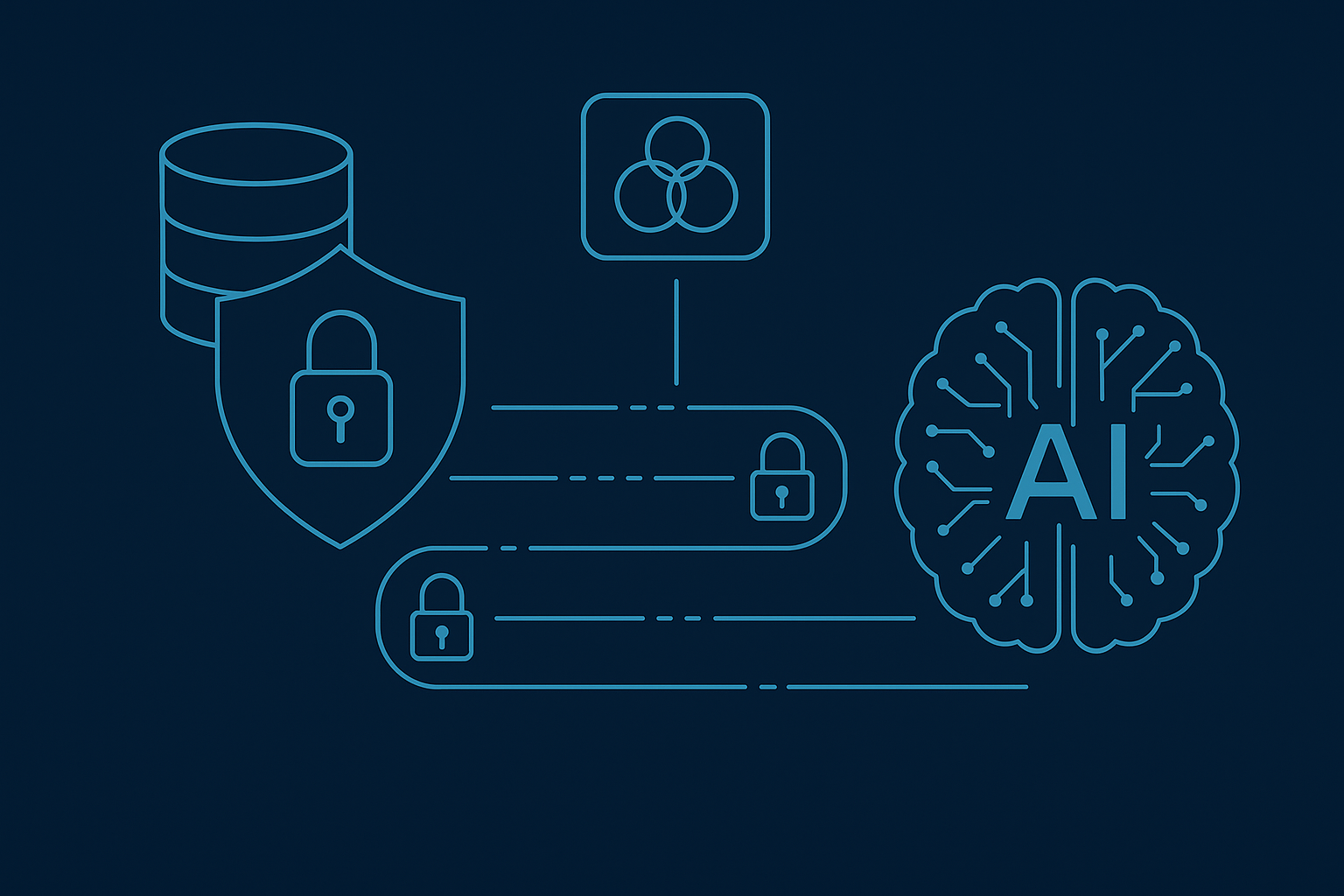Artificial Intelligence is transforming how organizations make decisions, serve customers, and streamline operations. But behind the headlines of innovation lies a growing concern: can we trust AI with our data?
AI systems thrive on data, but if that data isn’t handled securely and ethically, the consequences can be catastrophic.
For businesses exploring AI consultancy and custom tooling, data security is no longer an IT afterthought. It’s the foundation of every meaningful build.
Skip to What You Need to Know
The Relationship Between AI, Data Security, and Privacy
AI and data security are intrinsically linked. Why? Because AI models are trained on vast datasets—often containing sensitive, proprietary, or personally identifiable information (PII). Without strong safeguards, organizations risk exposing this data or misusing it.
Here’s how data privacy and AI intersect:
- Data Collection: AI requires large datasets, increasing exposure to privacy risks.
- Data Processing: Inference engines can unintentionally surface confidential insights.
- Data Storage: Improper access controls can lead to breaches.
- Data Sharing: AI often depends on third-party APIs or cloud systems, expanding the attack surface.
“An AI model is only as trustworthy as the data governance behind it. Every data touchpoint is a trust point—or a failure point.” — Webpuppies CTO
When any of these areas are compromised, it isn’t just a security issue—it’s a trust issue.
Learn more about how Zero-Trust Architecture helps mitigate these risks.
Why Privacy-First AI Matters for Enterprises
Whether you’re deploying AI in finance, healthcare, recruitment, or logistics, one truth holds: AI that violates privacy undermines both legal compliance and brand credibility.

Key Risks:
- Non-compliance with PDPA, GDPR, HIPAA, etc.
- Model hallucinations revealing confidential data
- Shadow AI or unsanctioned use of tools by teams
- Biased outputs due to poor data governance
This isn’t theoretical. It’s already happening. AI misuse has resulted in lawsuits, investigations, and public backlash. Enterprises can’t afford a blind spot.
For deeper insight into our AI governance approach, visit our Agentic AI Development page.
Secure AI Implementation: What It Looks Like
A secure, compliant, and ethical AI system doesn’t just happen—it’s built. Leaders don’t wait for regulation, they set the standard.
Components of Secure AI:
- Data Minimization: Collect only what’s needed
- Anonymization: Strip PII before training
- Access Controls: Role-based permissions for model interaction
- Audit Trails: Logs that ensure accountability and traceability
- Encryption: Secure data in transit and at rest
- Zero-Trust Architecture: Protect systems from inside-out breaches
“Privacy in AI isn’t just a compliance issue. It’s a product design philosophy.” — Abhi Dabas, CEO
At Webpuppies, we apply the same cybersecurity standards across AI solutions as we do for enterprise IT systems. This means no shortcuts. No excuses. And no tolerance for “move fast, break things” when it comes to your data.
Explore our AI Solutions & Strategy framework for a full breakdown of services.
From Compliance to Competitive Advantage
Many organizations treat data security as a checkbox. But those who lead the market treat it as a strategic asset.
By prioritizing AI ethics and privacy, you:
- Build customer trust
- Accelerate enterprise AI adoption
- Avoid costly legal consequences
- Gain an edge in highly regulated sectors
In other words: The next generation of enterprise AI will reflect your values.
Final Thoughts
Reckless AI adoption is a liability.
Enterprises that bake in privacy and security from day one don’t just mitigate risk—they unlock performance, loyalty, and long-term market leadership.
At Webpuppies, we help enterprises deploy powerful, secure AI solutions built on privacy-first principles and trusted engineering. Whether you’re building an AI MVP or scaling across markets, we make sure your innovation is backed by integrity.
Learn more about how we protect businesses in our Web & Mobile Security services.
Talk to us about building privacy-first AI for your enterprise →

